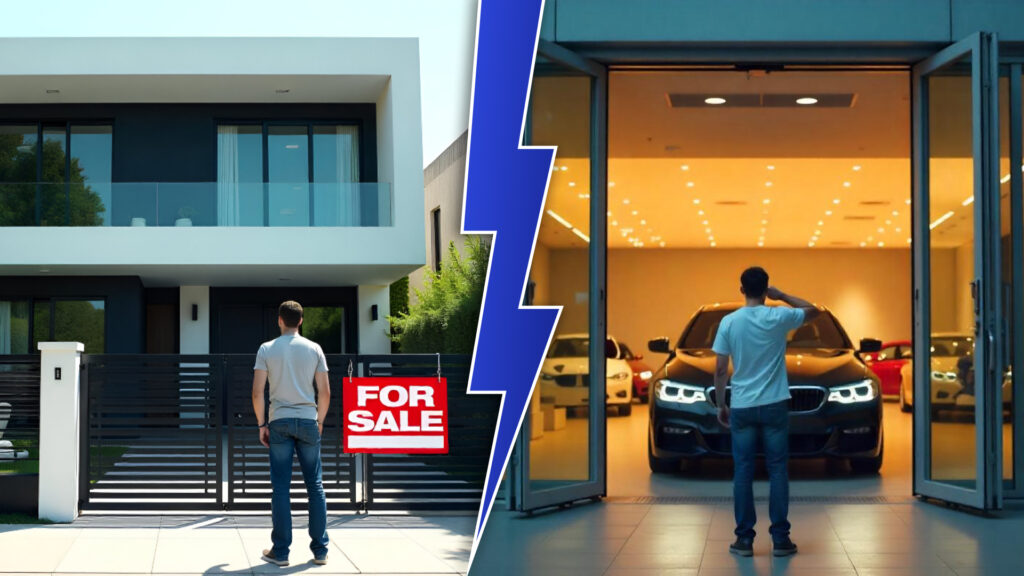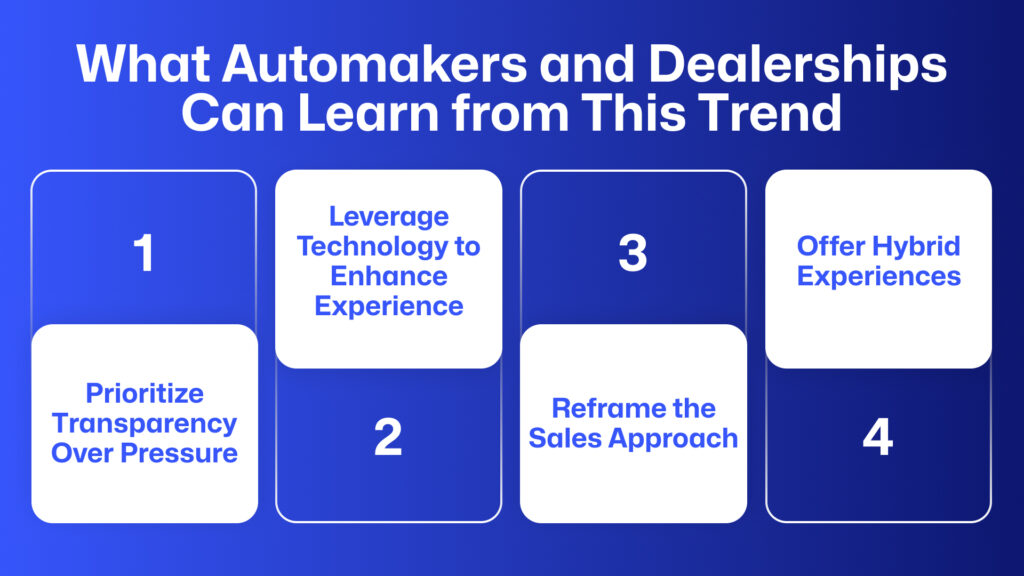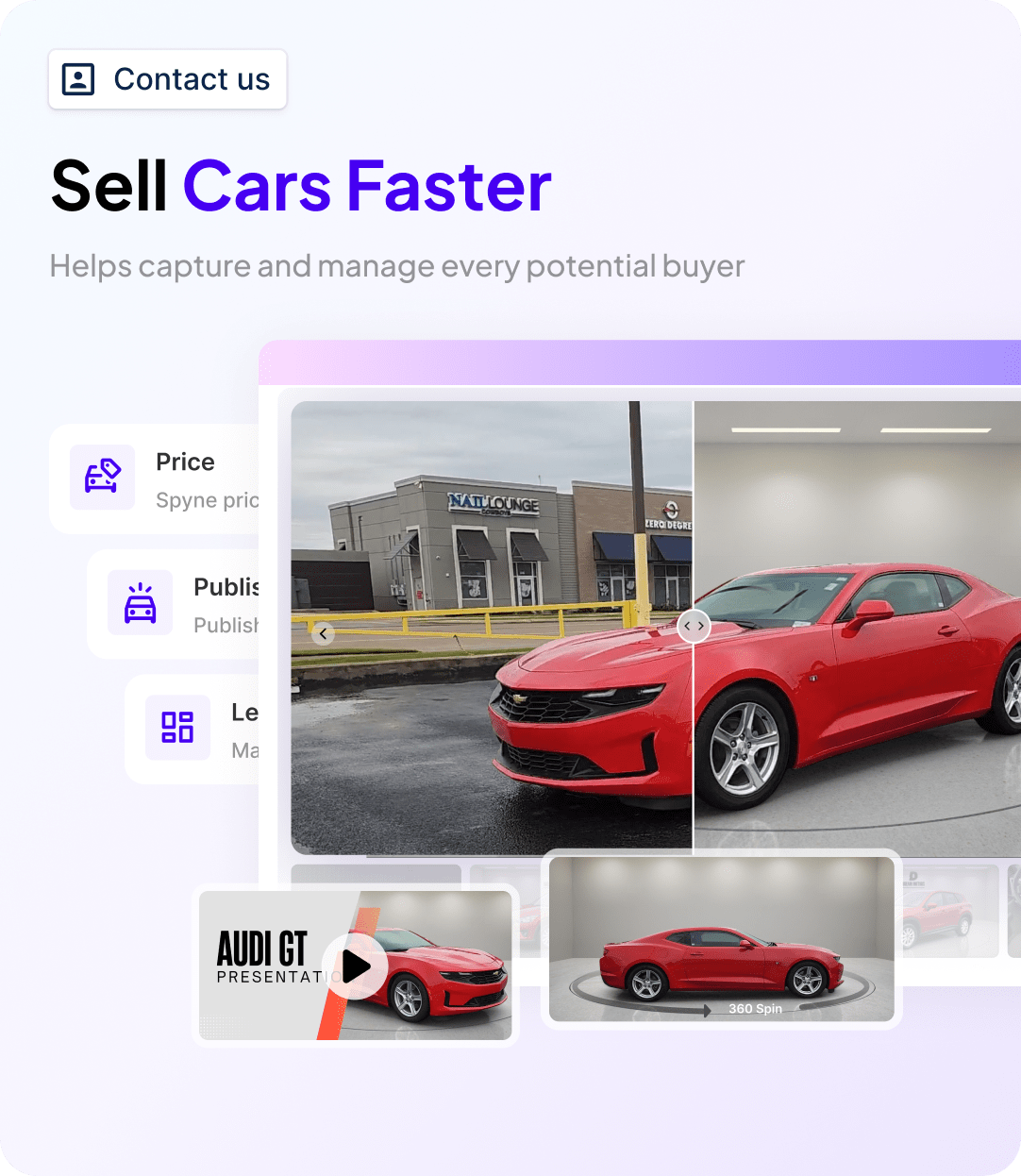If the idea of driving a brand-new car out of the showroom excites you, the gleaming red ribbon symbolizing its freshness, as you glide through the streets in your stunning new model, drawing admiring glances and a newfound sense of respect from onlookers, then you’re not alone. However, this excitement often diminishes into a car buying stress spiral when you scroll through multiple brands’ endless, closely related models, each offering something distinct but lacking in some aspect that the other offers. It gets pretty frustrating with so many options available. Surprisingly, research shows that buying a new car is now more stressful than purchasing a home.
It’s about pressure, option overload, aggressive sales tactics, financing headaches, and the fear of making a costly mistake. Unlike home buying, which often involves professional guidance and longer timelines, car buying is fast-paced, high-pressure, and packed with fine print that can catch even the most seasoned shopper off guard.
Survey Highlights: Cars vs. Homes – What’s More Stressful?

A recent national survey reveals a surprising twist: buying a car is considered more stressful than purchasing a home. According to the data, 52% of respondents reported feeling higher levels of anxiety when buying a car, compared to 42% who found home-buying more stressful. Key stressors in car shopping included aggressive sales tactics (65%), lack of price transparency (58%), and pressure to make quick decisions (54%).
In contrast, while home buying involves larger financial commitments, respondents cited better access to information and more time to decide as reasons for lower stress. Only 39% of participants said they felt rushed during the home-buying process, compared to 61% during car purchases.
This counterintuitive result highlights how emotional pressure, not just financial stakes, drives consumer stress. Car buyers often feel unprepared or overwhelmed by fast-paced negotiations and unclear pricing models. Despite the financial gravity of buying a home, the survey shows that car buying is often a more emotionally taxing experience. This suggests a need for greater transparency and consumer support in the automotive sales process.

Key Reasons Why Car Buying Feels Overwhelming
Though a car is just a quarter or even less expensive than a house, the stress is high. Not just because it is one of the first major purchases of a person’s life, but also because it involves saying no to various options, a lot of documentation, pre purchase car inspection and many more factors. One must not dismiss these relevant factors because they might lead to a better choice.
Pressure to Make the Right Choice
In a survey by Capital One, 52% of car buyers said they felt anxious during the process, primarily due to fear of making the wrong choice. Unlike a home, which often appreciates and is seen as an investment, a car depreciates when it’s driven off the lot, amplifying the pressure to get it right the first time.
What makes it worse is the looming fear of buyer’s remorse. Once you sign that dotted line and drive off the lot, returning the vehicle is rarely an option. The best deal, the latest model, the best dealership for post-sale support- we all want to get it right.
Lack of Transparency in Dealerships
One of the biggest sources of stress in car buying is the lack of transparency at dealerships. While homes are typically sold through licensed agents with clear documentation and legal protocols, car dealerships often leave buyers confused, frustrated, and skeptical.
According to an AutoTrader survey, 61% of car buyers said they feel like they’re being taken advantage of during the dealership process. Some common problems include:
1. Hidden fees like documentation charges, prep fees, and mandatory add-ons
- Inflated interest rates if financing is done through the dealership instead of a trusted lender
- Confusing pricing structures where the advertised price isn’t what you end up paying
- Pressure tactics like “this deal is only valid today” or “someone else is ready to buy it”.
Financing Confusion
Unlike a mortgage with standardized rates and bank approvals, auto financing varies wildly. Many buyers walk into dealerships unaware of their credit score, interest options, or how much they should be paying over time.
Dealerships often mark up interest rates, present monthly payments without disclosing full costs, or confuse buyers with leasing vs. buying language. The result? Buyers leave unsure of what they actually agreed to.
Fear of Overpaying or Getting Scammed
Car prices aren’t as fixed as home prices. Depending on your negotiation skills, timing, and knowledge, two buyers could pay vastly different amounts for the same vehicle.
Many buyers fear they’re being scammed—paying more than they should, being sold unnecessary warranties, or agreeing to terms they don’t fully understand. This fear adds enormous stress, especially for first-time buyers or those without trusted advisors.
Social Pressure and Image Concerns with Car Purchases
A recent survey sheds light on an unexpected source of stress for car buyers: social pressure and image concerns. While the financial aspect is significant, 48% of respondents revealed that the opinions of peers, colleagues, and even social media followers heavily influenced their car-buying decisions.
Keeping Up with Appearances
Many buyers admitted they felt compelled to purchase a vehicle that aligned with their perceived social status. In fact, 43% said they chose a more expensive car than planned simply to “make a good impression.”
Fear of Judgment
Around 39% of participants expressed anxiety about being judged for buying a used or budget-friendly car. The fear of appearing “cheap” or “outdated” was a surprising emotional trigger, especially among younger buyers aged 25–40.
The Role of Social Media
Social media adds another layer of pressure. Roughly 31% of car buyers reported posting their new car online immediately after purchase, suggesting a need for validation or approval.
Beyond the showroom and financing, car buying is often shaped by social expectations. These findings reveal how deeply image and peer influence contribute to the stress of purchasing a car, sometimes even more than the car itself.
Can AI & Automation Lessen Car Buying Stress?
The traditional car-buying process marked by haggling, hidden fees, and long dealership visits has long been a source of stress. But as AI in automotive trade came in , many are asking: can these technologies truly make car buying easier? The short answer is yes, and here’s how.
Smarter Vehicle Recommendations
Latest AI Technology is now helping buyers find the right car faster by analyzing preferences like budget, driving habits, and lifestyle. Instead of sifting through endless listings, users receive curated recommendations based on data and behavior patterns. This personalization significantly reduces research time and decision fatigue.
Transparent Pricing and Financing
One of the biggest stress points in car buying is not knowing if you’re getting a fair deal. AI tools can compare thousands of prices across dealers in real time, highlighting market value and potential savings. Similarly, automated financing platforms pre-approve buyers, match them with lenders, and clarify loan terms upfront without the pressure of a finance manager.
Streamlined Paperwork and Remote Purchasing
Thanks to automation, much of the paperwork can now be completed online. From digital signatures to instant vehicle registration, administrative tasks are being simplified. Some platforms even allow for full car purchases remotely, including doorstep delivery, transforming a traditionally overwhelming experience into a convenient one.
AI and automation aren’t just buzzwords in the auto industry they’re powerful tools reshaping how we buy cars. By simplifying search, increasing transparency, and minimizing in-person friction, these technologies make car buying less stressful, more efficient, and ultimately more enjoyable for modern consumers.
What Automakers and Dealerships Can Learn from This Trend
As consumers increasingly report high levels of car buying stress often even more than when buying homes it’s clear the industry needs to evolve. AI, automation, and shifting buyer expectations are all pointing toward a more transparent, customer-centric approach. Automakers and dealerships that adapt to this trend stand to gain both trust and loyalty.
Prioritize Transparency Over Pressure
Today’s buyers value clarity over persuasion. Dealerships that move away from aggressive sales tactics and offer upfront, no-haggle pricing will immediately reduce buyer anxiety. Providing clear breakdowns of costs, loan terms, and trade-in values builds trust, and trust drives sales.
Leverage Technology to Enhance Experience
Digital tools aren’t just convenient; they’re essential. Automakers and dealerships should invest in AI-driven recommendation engines, online financing tools, and automated paperwork systems. These not only speed up the process but also empower buyers to make informed decisions at their own pace.
Reframe the Sales Approach
Sales teams should shift from being closers to being consultants. Buyers want guidance, not pressure. Training staff to act as advisors rather than pushy sellers aligns better with the expectations of today’s digitally savvy consumers.
Offer Hybrid Experiences
A seamless mix of digital and in-person services is the new standard. From virtual test drives to online appointment scheduling and remote deliveries, dealerships must offer flexible buying paths that cater to varied comfort levels and lifestyle.
The future of car buying is rooted in trust, convenience, and empowerment. Automakers and dealerships that listen to consumer stress point and respond with smarter, more empathetic experiences will lead the next era of automotive retail.

Conclusion
Buying a car has always been a big decision, but today’s buyers are saying loud and clear they want it to feel less like a battle and more like a conversation. The old way of doing things, with confusing prices and high-pressure sales tactics, is wearing thin. People want honesty, simplicity, and the freedom to make choices on their own terms. Technology like AI and automation is helping move things in that direction, making the process quicker, clearer, and less overwhelming. But it’s not just about having the latest tools it’s about using them to create a better, more human experience. When dealerships and automakers focus on listening, guiding, and simplifying the journey, car buying becomes something people can feel good about. The real opportunity lies in building trust, not just closing deals. Those who understand that will be the ones customers keep coming back to and recommending to others.















